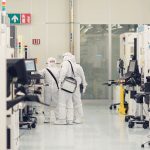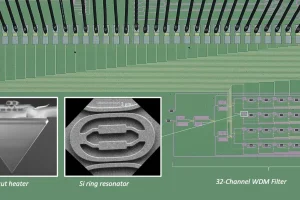
The SSTS program is the first initiative rallying stakeholders from across the IC value chain to anticipate the environmental impact of choices made at chip technology’s definition phase.
Using concrete and reliable models, and detailed (carbon) footprint analyses, the program will help the IC-making industry cut back on its ecological footprint – as part of the global fight against climate change, resources depletion and pollution.
IC technology is a fundamental enabler of our 21st century, digital lifestyles. It is the secret sauce behind cutting-edge innovations such as the IoT, machine learning and cloud computing. But it is also an essential component of countless ‘everyday’ objects. Think of cars, washing machines, smartphones, etc.
Over the years, the introduction of ever smaller, more powerful and increasingly more energy-efficient generations of chips has made smart devices progressively more sustainable.
In contrast, it is precisely the world’s growing dependence on semiconductor technology and its intricate production processes that have largely added to the IC-making industry’s own ecological footprint; a footprint not only characterized by high energy consumption and the use of chemicals, scarce materials, and ultrapure water – but also by the emission of greenhouse gases such as NF3.
“Many systems companies are carbon neutral today for their corporate footprints and have expressed the ambition to have their entire carbon footprint to net zero by 2030. They are very committed to achieving that goal, yet often lack the data to decipher the IC part end-to-end. That is where imec comes in. We have that data, and are ready to support the industry with all necessary insights, tools, instruments and numbers,” says Luc Van den hove, CEO of Imec (pictured). 
“Moreover, companies realize they can only become carbon neutral if their whole supply chain follows suit. So, that is the snowball effect we want to create – together with Apple – today: I would like to call upon the whole semiconductor value chain not to stand at the side, but to act as one and to join forces with us to cut back the entire semiconductor industry’s ecological footprint,” he adds.
Fully determined to contribute to the fight against global climate change, resources depletion and pollution, fabs and equipment suppliers around the world have been doubling their efforts to come to a more sustainable IC manufacturing value chain. Research has shown, for instance, that close to 75% of a mobile device’s CO2 emissions can be attributed to its fabrication – with almost half of that resulting from the underlying IC manufacturing. Yet, so far, a holistic approach to reducing the IC-making industry’s emissions has been lacking.
“That is why imec is launching its Sustainable Semiconductor Technologies and Systems (SSTS) research program,” says Luc Van den hove. “It is a program drawing on our widely acclaimed fab expertise. It combines imec’s insights in infrastructure, technology and machinery to help the complete IC value chain reduce its ecological footprint. Our aim is to inform partners of the environmental impact of certain choices made at chip technology’s definition phase. That holistic view – consisting of concrete and reliable models, and detailed (carbon) footprint analyses – is what sets our SSTS program apart.”
 Electronics Weekly Electronics Design & Components Tech News
Electronics Weekly Electronics Design & Components Tech News



